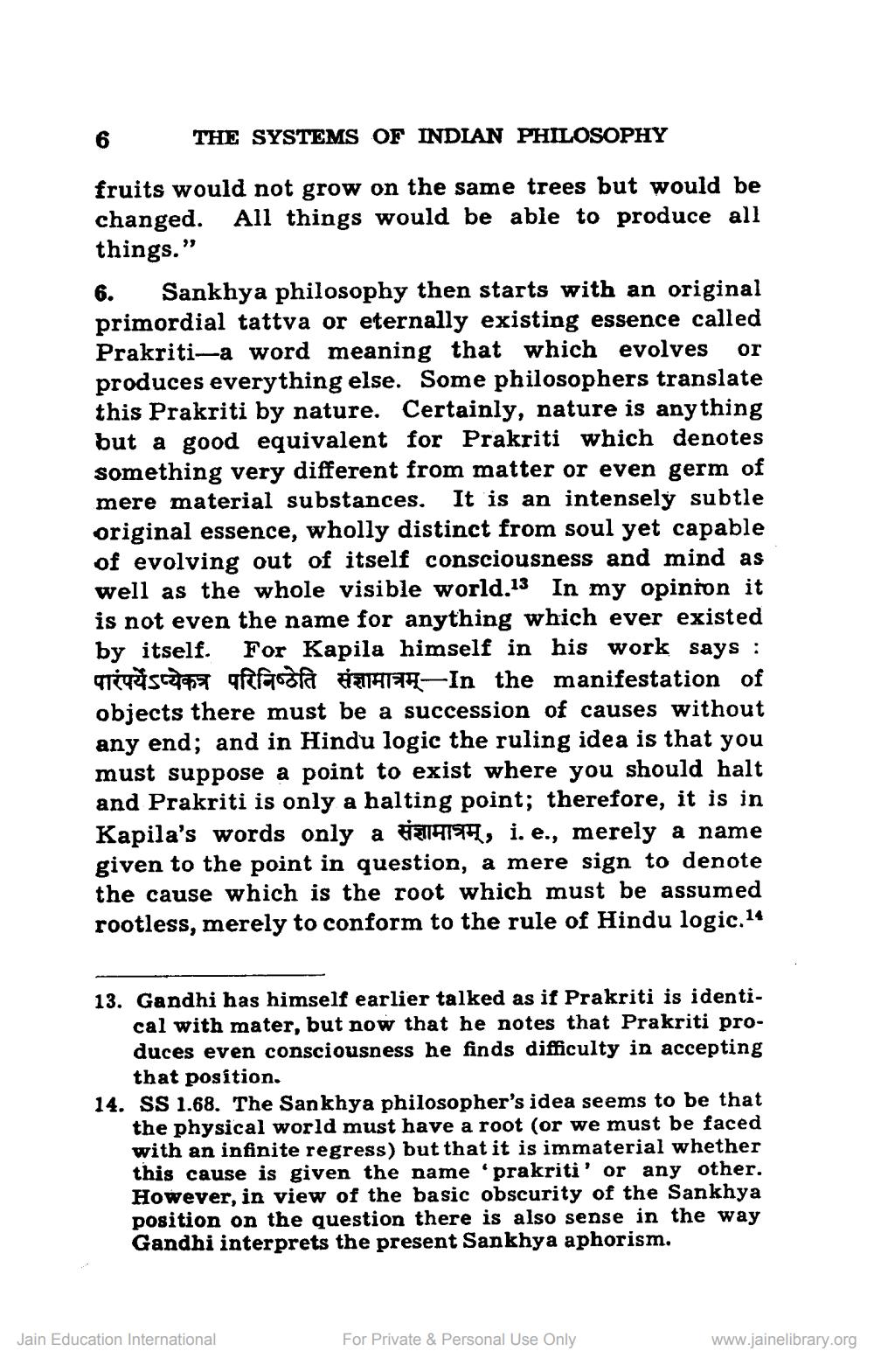________________
6
THE SYSTEMS OF INDIAN PHILOSOPHY
fruits would not grow on the same trees but would be changed. All things would be able to produce all things." 6. Sankhya philosophy then starts with an original primordial tattva or eternally existing essence called Prakriti-a word meaning that which evolves or produces everything else. Some philosophers translate this Prakriti by nature. Certainly, nature is anything but a good equivalent for Prakriti which denotes something very different from matter or even germ of mere material substances. It is an intensely subtle original essence, wholly distinct from soul yet capable of evolving out of itself consciousness and mind as well as the whole visible world.13 In my opinion it is not even the name for anything which ever existed by itself. For Kapila himself in his work says : पारंपर्येऽप्येकत्र परिनिष्ठेति संज्ञामात्रम्-In the manifestation of objects there must be a succession of causes without any end; and in Hindu logic the ruling idea is that you must suppose a point to exist where you should halt and Prakriti is only a halting point; therefore, it is in Kapila's words only a Å3141919, i. e., merely a name given to the point in question, a mere sign to denote the cause which is the root which must be assumed rootless, merely to conform to the rule of Hindu logic. 14
13. Gandhi has himself earlier talked as if Prakriti is identi
cal with mater, but now that he notes that Prakriti produces even consciousness he finds difficulty in accepting
that position. 14. SS 1.68. The Sankhya philosopher's idea seems to be that
the physical world must have a root (or we must be faced with an infinite regress) but that it is immaterial whether this cause is given the name 'prakriti' or any other. However, in view of the basic obscurity of the Sankhya position on the question there is also sense in the way Gandhi interprets the present Sankhya aphorism.
Jain Education International
For Private & Personal Use Only
www.jainelibrary.org




